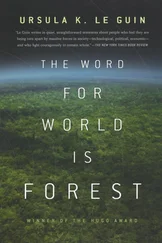Nick Harkaway - The Gone-Away World
Здесь есть возможность читать онлайн «Nick Harkaway - The Gone-Away World» весь текст электронной книги совершенно бесплатно (целиком полную версию без сокращений). В некоторых случаях можно слушать аудио, скачать через торрент в формате fb2 и присутствует краткое содержание. Жанр: Фантастика и фэнтези, Фэнтези, на английском языке. Описание произведения, (предисловие) а так же отзывы посетителей доступны на портале библиотеки ЛибКат.
- Название:The Gone-Away World
- Автор:
- Жанр:
- Год:неизвестен
- ISBN:нет данных
- Рейтинг книги:4 / 5. Голосов: 1
-
Избранное:Добавить в избранное
- Отзывы:
-
Ваша оценка:
- 80
- 1
- 2
- 3
- 4
- 5
The Gone-Away World: краткое содержание, описание и аннотация
Предлагаем к чтению аннотацию, описание, краткое содержание или предисловие (зависит от того, что написал сам автор книги «The Gone-Away World»). Если вы не нашли необходимую информацию о книге — напишите в комментариях, мы постараемся отыскать её.
The Gone-Away World — читать онлайн бесплатно полную книгу (весь текст) целиком
Ниже представлен текст книги, разбитый по страницам. Система сохранения места последней прочитанной страницы, позволяет с удобством читать онлайн бесплатно книгу «The Gone-Away World», без необходимости каждый раз заново искать на чём Вы остановились. Поставьте закладку, и сможете в любой момент перейти на страницу, на которой закончили чтение.
Интервал:
Закладка:
“You mean like the Internal Alchemies? The Iron Skin Meditation and the Ghost Palm Strike?”
The Iron Skin makes a warrior immune to physical weapons; the Ghost Palm passes through solid matter—it cannot be avoided or deflected. I have seen them in movies. I did not know that girls watched those sorts of movies.
“Yes,” says Elisabeth.
“Well, no,” says Master Wu, “there aren’t really any of those.”
This is what he tells everyone who asks, and everyone asks sooner or later. Master Wu has few students, but some of them have students of their own, and one or two of those also have students, spread out across the globe in a great tree of tuition and discovery and experimentation and instruction, but the root is here in Cricklewood Cove, and here it is that every student of whatever level eventually comes to meet Master Wu. Each generation of student is supposed to acknowledge a kind of family relationship with the ones around—we have Voiceless Dragon elder uncles and aunts from Eastbourne to Westhaven, and countless brothers and sisters and nieces and nephews. Some are brash and some are deferential and almost all of them, when they come here, are looking for a saint or a warrior, or a demi-god wrapped in mysteries, and Master Wu takes care to relieve them of that illusion in the most painless way.
“No magic,” he tells them stoutly. “No Secrets! No ‘inside the door.’ The truth is not hidden. It is simple. Just very difficult—but I am stubborn!” The laugh, too big for him, and then a little grin, just for you: “And I am lucky! I started early,” by which he means that his father whispered the training songs over his crib in Yenan.
“No,” Master Wu says now, “there are no Secrets. None at all. Would you like me to teach you one?”
“One what?”
“A Secret.”
“You said there weren’t any.”
“I will make one up for you. Then the next time someone asks, we can tell them we do know Secrets after all. Although it might make Mr. Lasserly very cross if he ever found out.” This fearful drawback clearly does not alarm Master Wu at all. He ponders. “Okay,” says Master Wu, after a moment, “a story and a Secret. Are you ready?”
We nod.
“Once upon a time,” Master Wu says, “in the days when your mothers’ mothers were young and attractive and before the wireless carried the voice of England to the corners of the world, there was a boy who could hear the sea from a thousand miles away. He could stand in the dry mountains and hear the sound of breakers on the beach. He could sit with his eyes on the mountains and listen to the storms crashing against high cliffs he had never seen. The salt water was in his veins, and in his heart.
“It made him very bad at many things. He was a bad farmer, a bad hunter, a bad cobbler and a very bad musician, because the noise distracted him and made him play the notes at the wrong time, and in the wrong place—and worse, when he played false, everyone else got drawn into the great ebb and flow of the sea and even the cheeriest music slowed down and sounded like a funeral song: deep, long breaths trailing away into nothing and then rising up again like tears.
“You might think he’d be unpopular, but he was a good-natured boy and his people were good-natured too, and as long as he worked hard and didn’t break things very often, they were happy with him. He moved in a graceful, liquid way, stepping from one foot to the other and back, in and out, back and forth, but of course not every shape in the world lends itself to someone who walks like a rocking horse, so even though his touch was light and his grip was strong, he snapped the ends of things or jostled people from time to time. It balanced out, maybe. In the morning, he worked with his father making things out of leather—his father had set aside a place in the workshop where he could sway without knocking anything over—and in the afternoon he worked with his uncle making bread, which doesn’t care if you roll it and twist it like seaweed on the beach. In the evening he sat and he closed his eyes until he could feel the spray washing over him and he breathed in time to the waves hitting the rocky cliffs he had never seen. And always, always, at dawn, he and his father and his uncle and all their family—even the women, which was most unusual—practised their gong fu together, because they knew they would have to fight one day, somehow. And of all of them, the young man trained the hardest and studied most deeply, because his patience was like the sea which whispered in his head.
“One day, a great master of gong fu came to the town. He was a fat man, and a mercenary. A soldier for hire, without an employer, and that is a dangerous thing. There were many great masters then, and some of them were very great and some of them were only a little bit great and some perhaps were only great as a courtesy. This one was of the middle ground: he was quick like a cat, but not like lightning; he was strong like a river ox, but not like a mountain bear or a giant; he was clever, but not wise, and he enjoyed his strength and his speed and his power over other people. And so this great master, who was really not a nice man, grew very drunk in the village saloon and laid about him with a broken spar of wood, and he struck the owner of the saloon between the eyes and cracked his skull so that he died, and then he set about the customers and the saloon owner’s family too.
“So the leatherworker and his brother—our young man’s father and uncle, you remember—went in to meet him and tell him to behave himself like a master and not a thug, and he cast his eyes downwards and acted most contrite, then when they relaxed, he knocked them head over heels out through the door with his broken spar. The young man’s father had a bruise on his head and his uncle had crossed eyes and was bleeding from one ear. And so the young man, who had never been in a real fight before, walked into the saloon and told this old, accomplished master of gong fu that he was a small man, a miserable creature, a weak, drunken oaf with no conversation and no chance with any lady he did not pay for. And while the master was still staring at him, he added many other things less polite which were perhaps unfair, but still most efficacious in attracting the master’s attention. And so, they fought.”
Master Wu smiles, and he stretches his narrow shoulders and they pop, and there is a little shine in his eye as recollection takes away his years.
“It was a great fight. Many buffets. Perhaps a hundred. They leaped and they struck and the young man broke the spar with his foot and the great master hurled him back and the young man rolled to his feet and attacked him again, and so on and so on, until the saloon funiture was all matchwood and they were both shaking and bruised, but the great master was still on his feet and his opponent could not prevail. The young man was covered in cuts and bruises, and his mouth was swollen. And the great master said:
“ ‘You have done very well, young man, but now I see that you are tired, and I am older and stronger than you are. Retire, and I will not hurt you any more, but if you remain, I will break you as you broke my spar, and your mother will weep for her wasted years.’ But the young man did not reply. He smiled as if he were just now understanding something, and he shut his eyes, and he listened to the sound of the waves. And he began to move. He moved in step with the slow, inevitable rhythm in his head, and the storm lent strength to his tired limbs and the ebb and the flow of the sea washed away his hurts and doubts, and soon the whole room was filled with the rush of the tide. The great master fell into that same rhythm and their footsteps moved as one, until the young man heard a great wave come roaring in from the deep, and it bore down over the great master with the weight which shatters stone, and the great master fell to his knees with a shout, and the fight was over. The master lay gasping on the floor of the saloon and spent many weeks in a cot recovering from his wounds. And then he left, after paying for the damage, with great humility. It is rumoured that thereafter he became a baker, and married, and had many children, and was a better man.
Читать дальшеИнтервал:
Закладка:
Похожие книги на «The Gone-Away World»
Представляем Вашему вниманию похожие книги на «The Gone-Away World» списком для выбора. Мы отобрали схожую по названию и смыслу литературу в надежде предоставить читателям больше вариантов отыскать новые, интересные, ещё непрочитанные произведения.
Обсуждение, отзывы о книге «The Gone-Away World» и просто собственные мнения читателей. Оставьте ваши комментарии, напишите, что Вы думаете о произведении, его смысле или главных героях. Укажите что конкретно понравилось, а что нет, и почему Вы так считаете.












